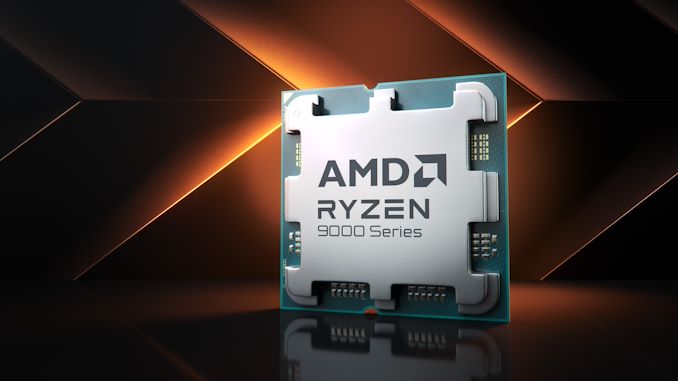AMD has announced a delay in launching their Ryzen 9000 series desktop processors. Initially scheduled for July 31st, the launch of the first Zen 5 architecture-based desktop chips has been postponed by one to two weeks due to significant quality issues. AMD is even pulling back the stock from distributors to address these concerns. The Ryzen 9000 series will now have a staggered launch: Ryzen 5 9600X and Ryzen 7 9700X will launch on August 8th, while Ryzen 9 9900X and flagship Ryzen 9 9950X will debut on August 15th.
This critical announcement comes officially from AMD’s SVP and GM of Computing and Graphics, Jack Huynh. Pre-launch checks revealed that “the initial production units that were shipped to our channel partners did not meet our full quality expectations.” Consequently, the company has decided to delay the launch to address the issue.
Because AMD had already distributed chips to their channel partners – distributors who then filter down to retailers and system builders – this also constitutes a recall. AMD needs to retrieve the initial batch of chips and replace them with verified good units. The delay is primarily driven by the time required to properly seed retailers for a desktop CPU launch with even modest chip volumes, necessitating a push in the launch schedule.
Currently, there are no additional details on the specific quality issues affecting the first batch of chips, the number of units impacted, or the nature of the fix required. AMD has simply stated they are taking back all stock and replacing it with what they term “fresh units.”
| AMD Ryzen 9000 Series Processors Zen 5 Microarchitecture (Granite Ridge) |
||||||||
| AnandTech | Cores / Threads |
Base Freq |
Turbo Freq |
L2 Cache |
L3 Cache |
Memory Support | TDP | Launch Date |
| Ryzen 9 9950X | 16C/32T | 4.3GHz | 5.7GHz | 16 MB | 64 MB | DDR5-5600 | 170W | 08/15 |
| Ryzen 9 9900X | 12C/24T | 4.4GHz | 5.6GHz | 12 MB | 64 MB | 120W | ||
| Ryzen 7 9700X | 8C/16T | 3.8GHz | 5.5GHz | 8 MB | 32 MB | 65W | 08/08 | |
| Ryzen 5 9600X | 6C/12T | 3.9GHz | 5.4GHz | 6 MB | 32 MB | 65W | ||
Importantly, this announcement only affects the Ryzen 9000 desktop processors and not the Ryzen AI 300 mobile processors (Strix Point), which remain on track for next week’s launch. Since mobile chips are already in finished devices, a recall there would require significant labor to rework. Additionally, both the new desktop and mobile Ryzen processors share the same TSMC N4 process node and the Zen 5 architecture. This implies that the issue likely isn’t a design or silicon fabrication flaw.
The quick re-staging of the Ryzen 9000 desktop chips – within a few weeks – suggests the issue lies further down the production line. It seems unlikely that the problem is at the silicon level; packaging and testing are more probable culprits. This could mean issues in assembling the multi-die chips or necessitating further checks by AMD. It will be interesting to learn whether AMD needs to discard the first batch of Ryzen 9000 desktop chips entirely or simply rerun QA to filter out the faulty units.
Additionally, AMD’s revised launch schedule splits the Ryzen 9000 stack into two parts. The high-end chips incorporating two CCDs are delayed an additional week compared to the lower-end units with a single CCD. Multi-CCD chips require more validation time and more CCDs to assemble, raising the question of whether the extra week is due to a supply bottleneck or chip testing bottleneck.
However, the silver lining is that AMD identified the problem before faulty chips reached consumers. Although the need to re-stage the launch disrupts marketing efforts, it avoids the complexities of a post-launch recall, which would have been far more damaging for AMD. Interestingly, arch-rival Intel is experiencing similar issues this week.
In any case, this will undoubtedly be remembered as one of the more intriguing AMD desktop chip launches. We expect more details to emerge, and look forward to chip reviews – just not on July 31st as initially planned.
–AMD SVP and GM of Computing and Graphics, Jack Huynh




